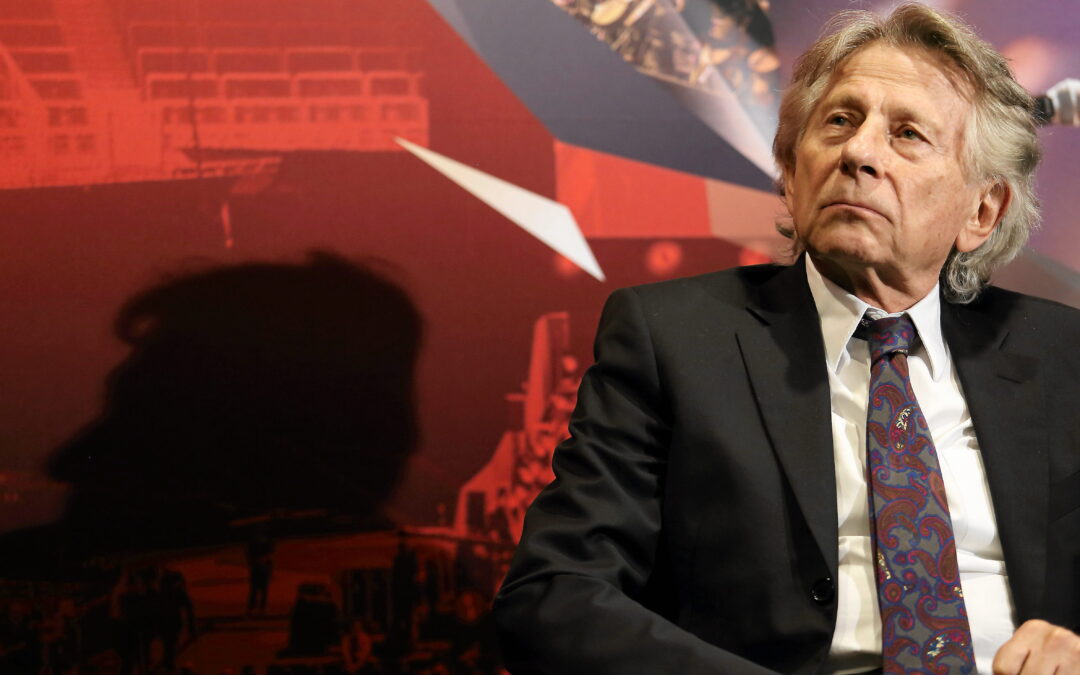The film director Roman Polański has attended a ceremony in Poland to honour the family that helped save him from the Holocaust. They have been recognised by Israel as Righteous Among the Nations for risking their lives to rescue a Jew.
“She provided me with shelter, putting her own life and that of her family in danger,” said Polański, referring to the mother of the family that hid him during the German Nazi occupation of Poland.
Gliwice. Roman Polański wręcza medal „Sprawiedliwi wśród Narodów Świata” potomkowi Stefanii i Jana Buchałów – Stanisławowi. Buchałowie ukrywali Polańskiego w czasie II Wojny Światowej. @radiozet_news pic.twitter.com/iXuESJfAuS
— Łukasz Konarski (@lukonarski) October 15, 2020
Polański, who had been born to Polish-Jewish parents in Paris in 1933, moved with them to Kraków in Poland four years later. Following the German invasion of 1939, the family found themselves imprisoned in the city’s Jewish ghetto.
After his father was sent to the Mauthausen concentration camp, where he worked as a slave labourer, and his mother was taken to Auschwitz, where she was killed soon after arrival, the 10-year-old Polański managed to escape the ghetto with the help of some Polish contacts of his father. He survived the rest of the war by passing himself off as a Catholic.
Among those who helped him were the Buchała family, who lived on a farm in the village of Wysoka. At the time, the punishment for hiding Jews from the German occupiers could be the murder of a whole family.
The Buchałas had “just an acre of land and a cow”, Polański later recalled. “Their lives were a daily struggle for survival.”
“The kindness they showed me was all the more astonishing as the Puteks [Christian friends of his parents] paid them almost nothing for my maintenance,” said Polański. “It seemed that most of my father’s unofficial deposit [to help his son survive] had dissolved along the way.”
Polański – who was unable to attend the local school due to his lack of documents – spent the rest of the war helping the family with household and farm duties.
In later years, Polański returned to the village twice, but was unable to find the family, reports Gazeta Wyborcza. It was only thanks to two Polish documentary film makers – Anna Kokoszka-Romer and Mateusz Kudła – that he was recently reunited with them.
The process then began of recognising the couple who saved him – Stefania and Jan, who are now deceased – as Righteous Among the Nations, an honour Israel’s Yad Vashem bestows upon non-Jews who, for altruistic reasons, risked their lives during the Holocaust to save Jews from extermination.
At today’s ceremony in the city of Gliwice, Stanisław Buchała – the grandson of Stefania and Jan – collected the posthumous honour on their behalf. Before Kokoszka-Romer and Kudła found him, Stanisław had never known about his grandparents’ heroism.
“It is a great pride that my family did something like that,” he said, quoted by Onet. “This is an expression of the highest humanity on the part of my grandparents. Let people see, especially during this pandemic, that someone can do something selflessly for another human being.”
Another Pole, Zofia Szczygielska, a nun who saved two Jewish girls – Ester Frajlach and Rina Gluckman – was also honoured posthumously by Yad Vashem today. Over 7,100 Poles have been named as Righteous by Yad Vashem, more than any other national group.
After the war, Polański returned to Kraków and was reunited with his father. He then went on to attend the famous film school in Łódź, launching a career that took him to Hollywood and accolades including a best director Oscar for The Pianist, based on the true story of another Polish-Jewish Holocaust survivor, Władysław Szpilman.
Polański has lived in exile from the United States since 1978, when he fled justice after pleading guilty to unlawful sex with 13-year-old girl Samantha Geimer. In 2016, Poland’s Supreme Court rejected a request by the justice minister, Zbigniew Ziobro, for Polański to be extradited to the US to face justice.
Last year, some students at Polański’s former film school in Łódź protested against a planned visit by him, saying that the institution “should be a place that condemns sexual violence”.
Main image credit: Grzegorz Celejewski / Agencja Gazeta

Daniel Tilles is editor-in-chief of Notes from Poland. He has written on Polish affairs for a wide range of publications, including Foreign Policy, POLITICO Europe, EUobserver and Dziennik Gazeta Prawna.




















